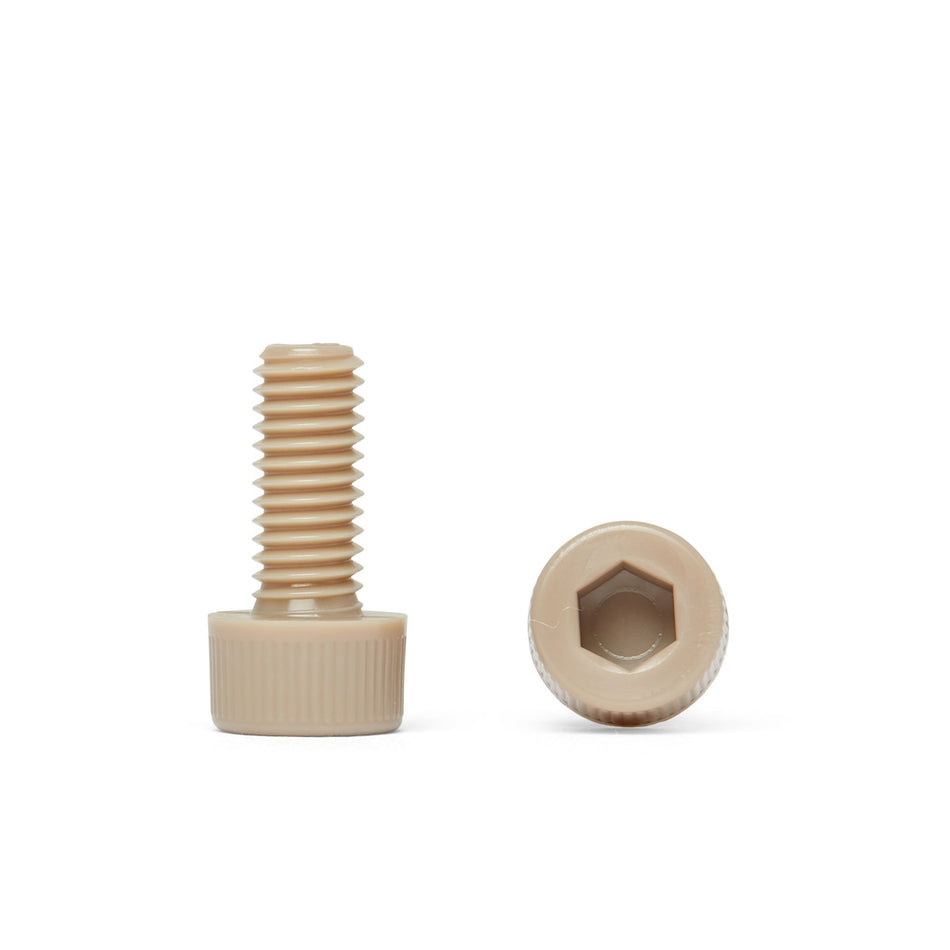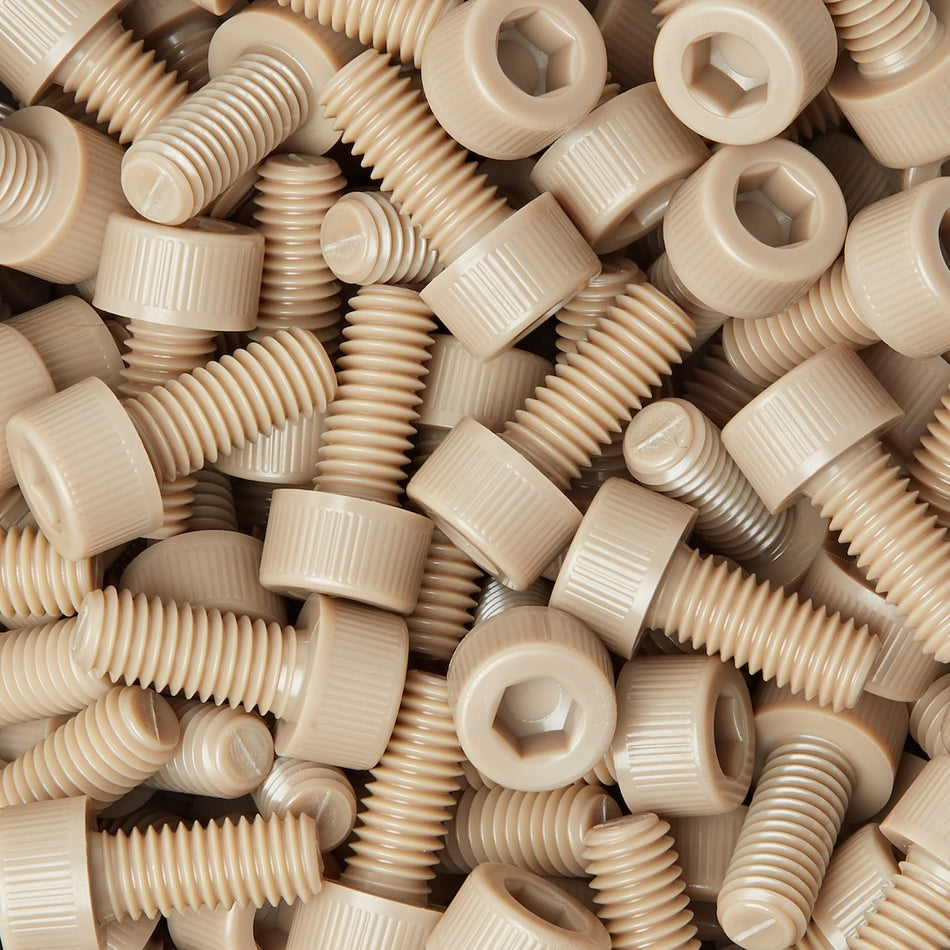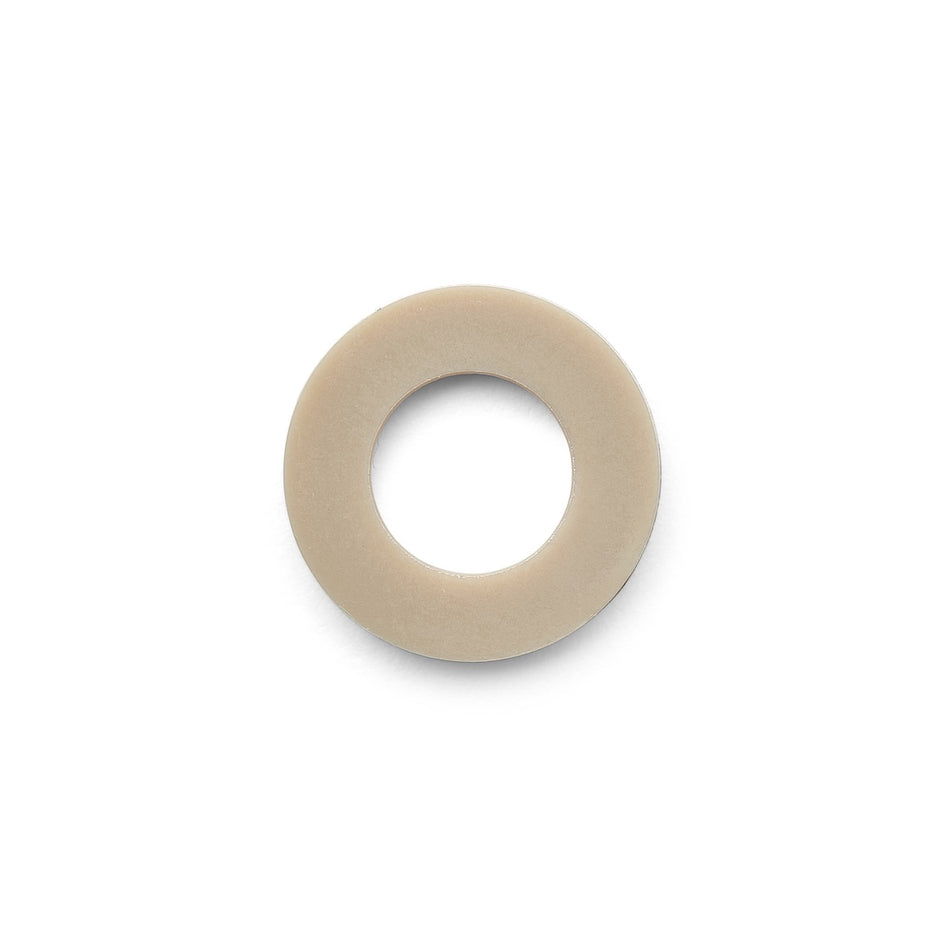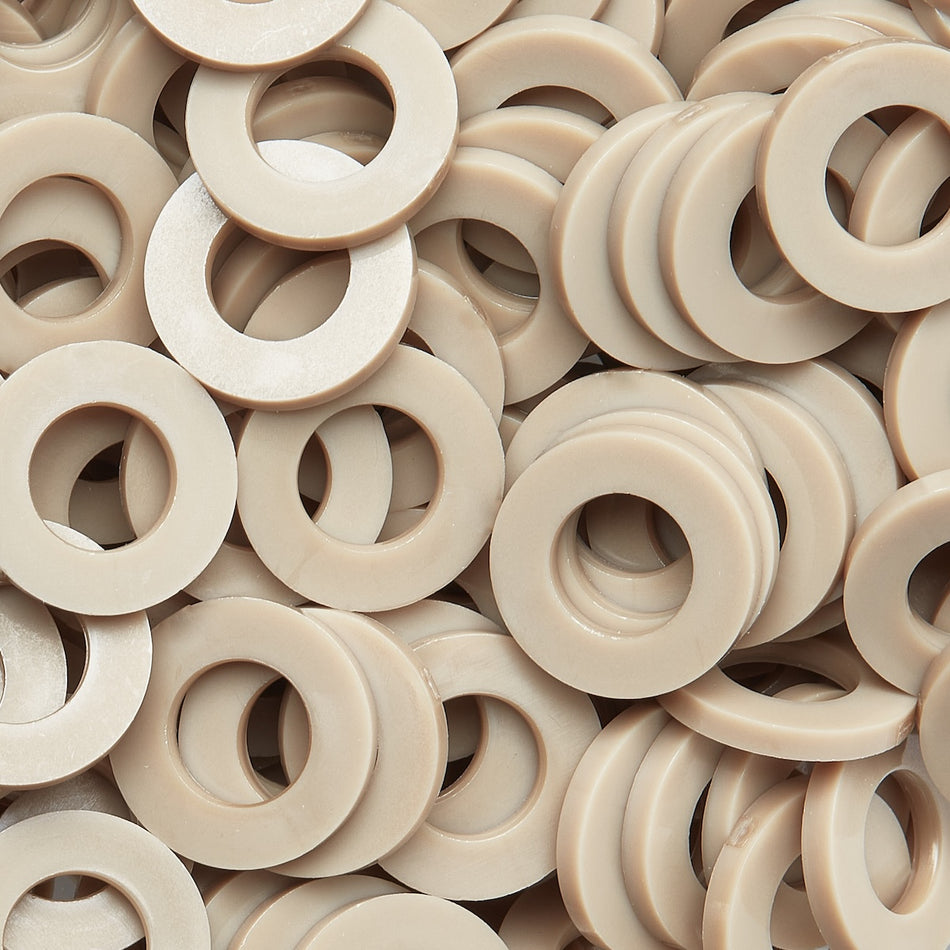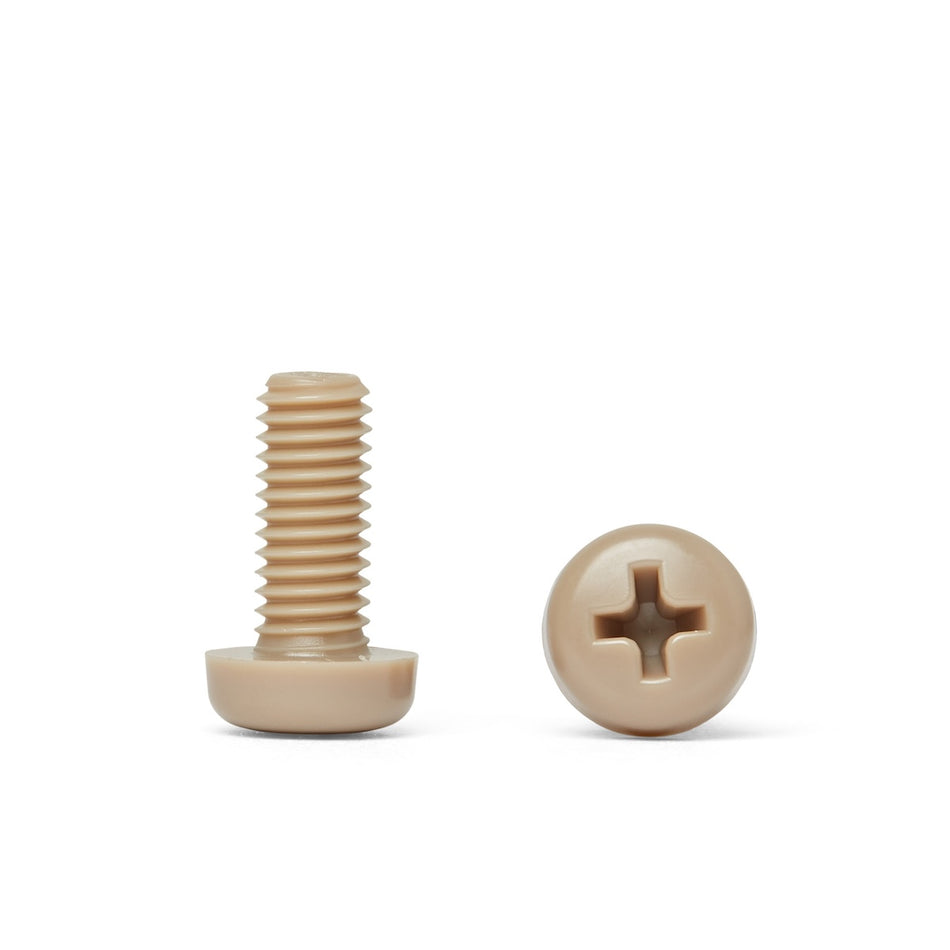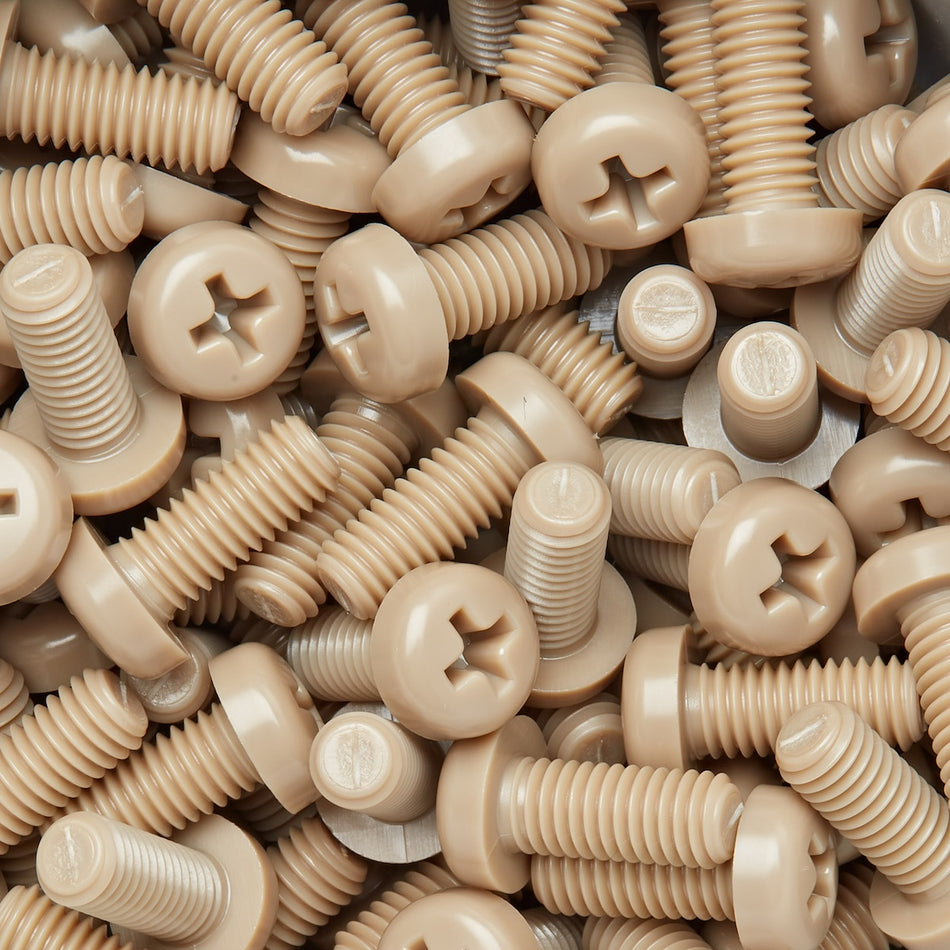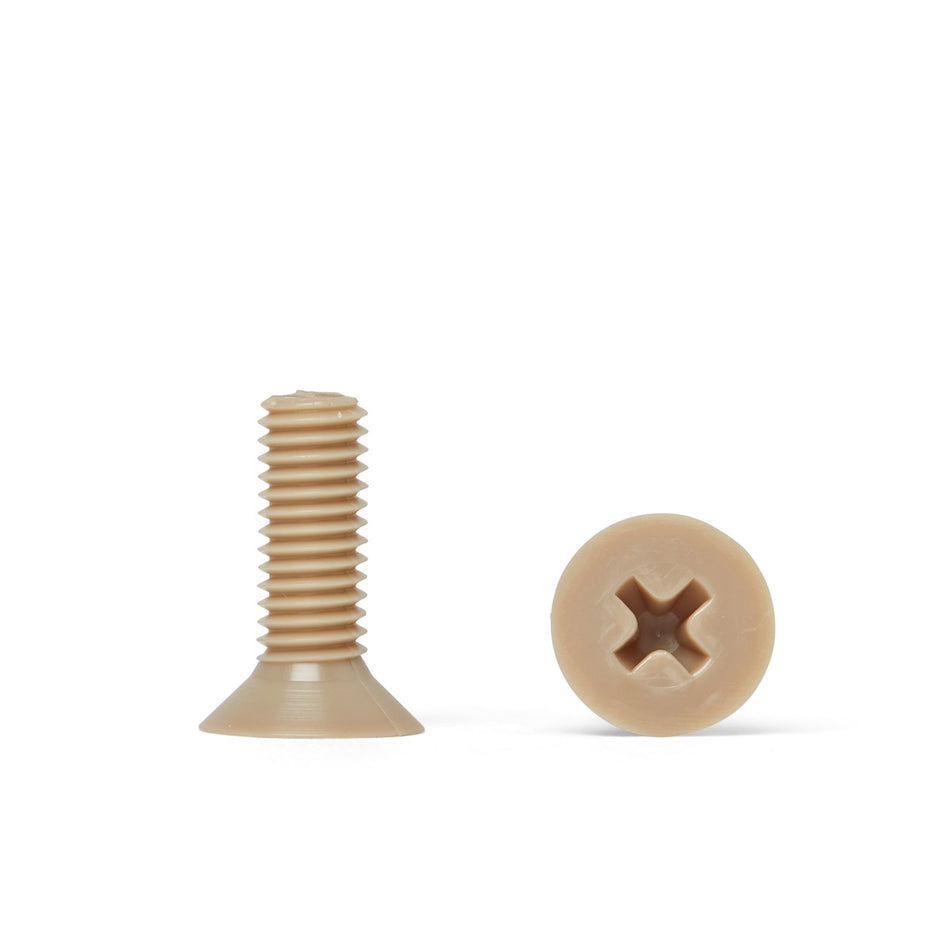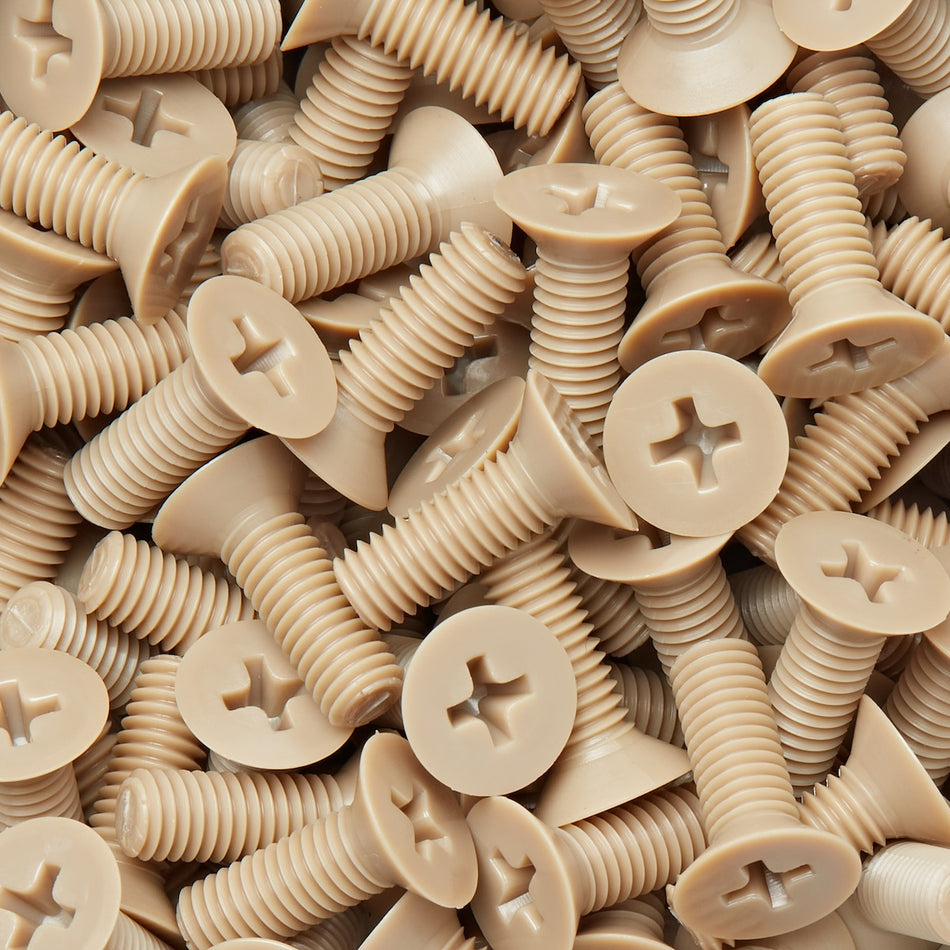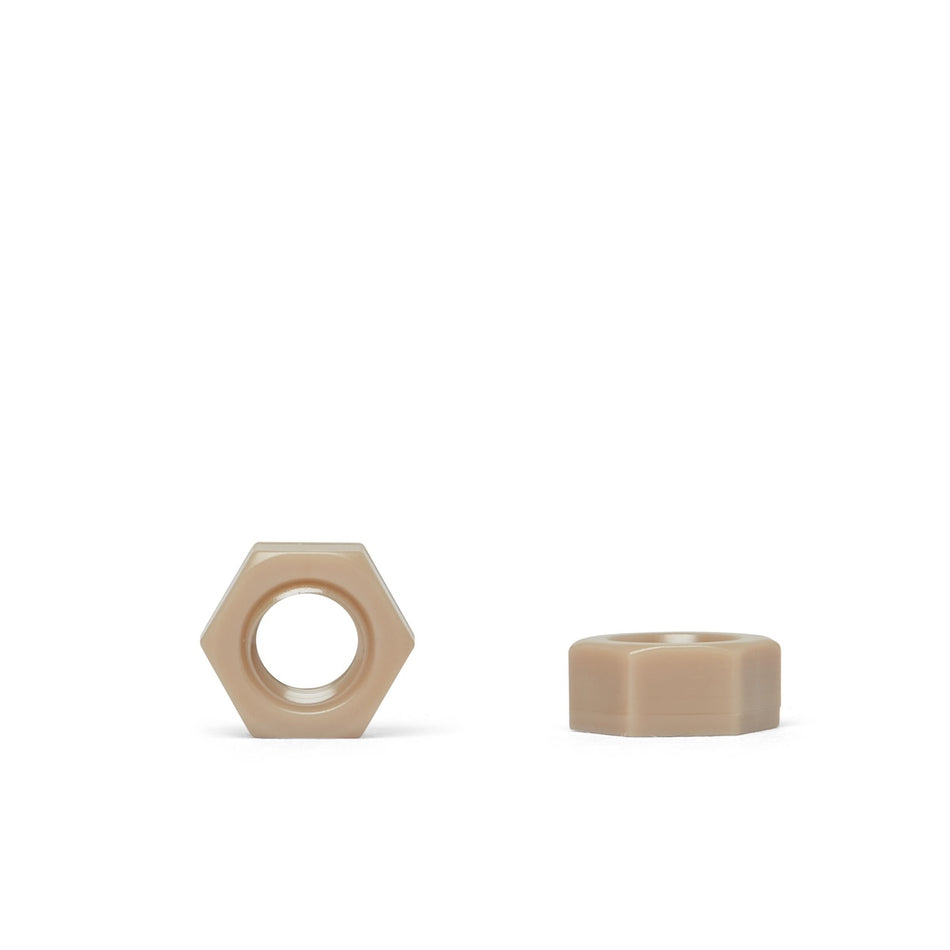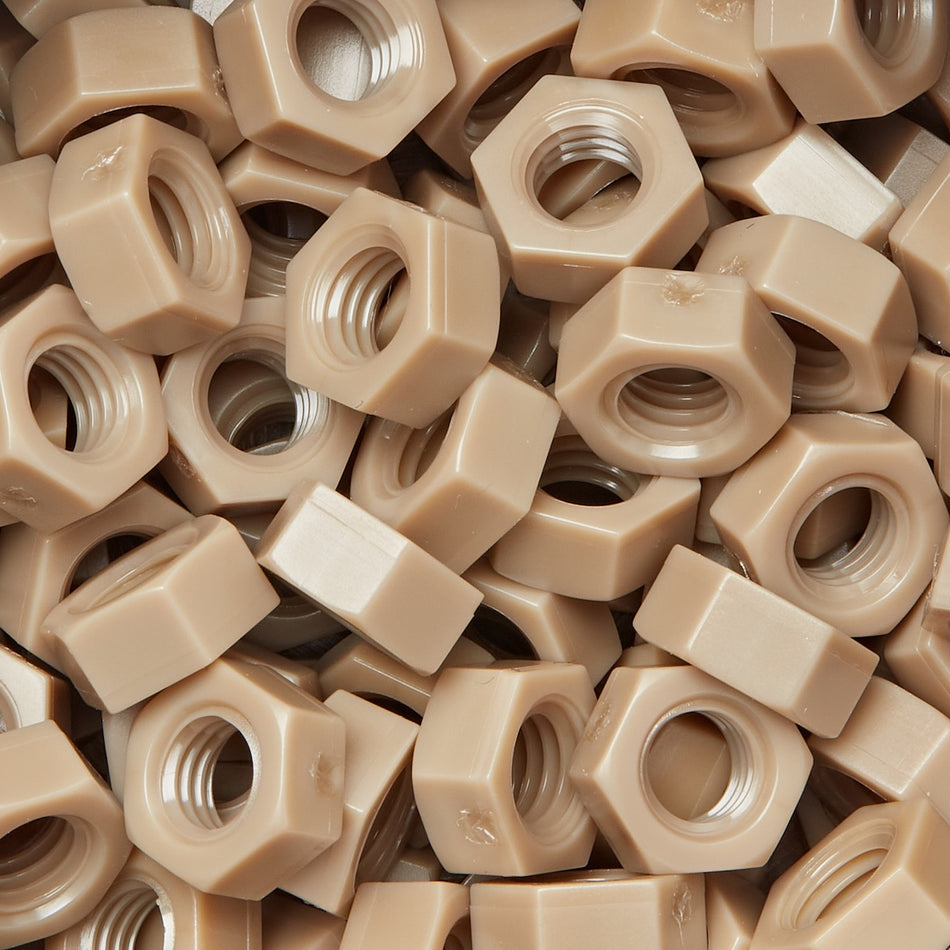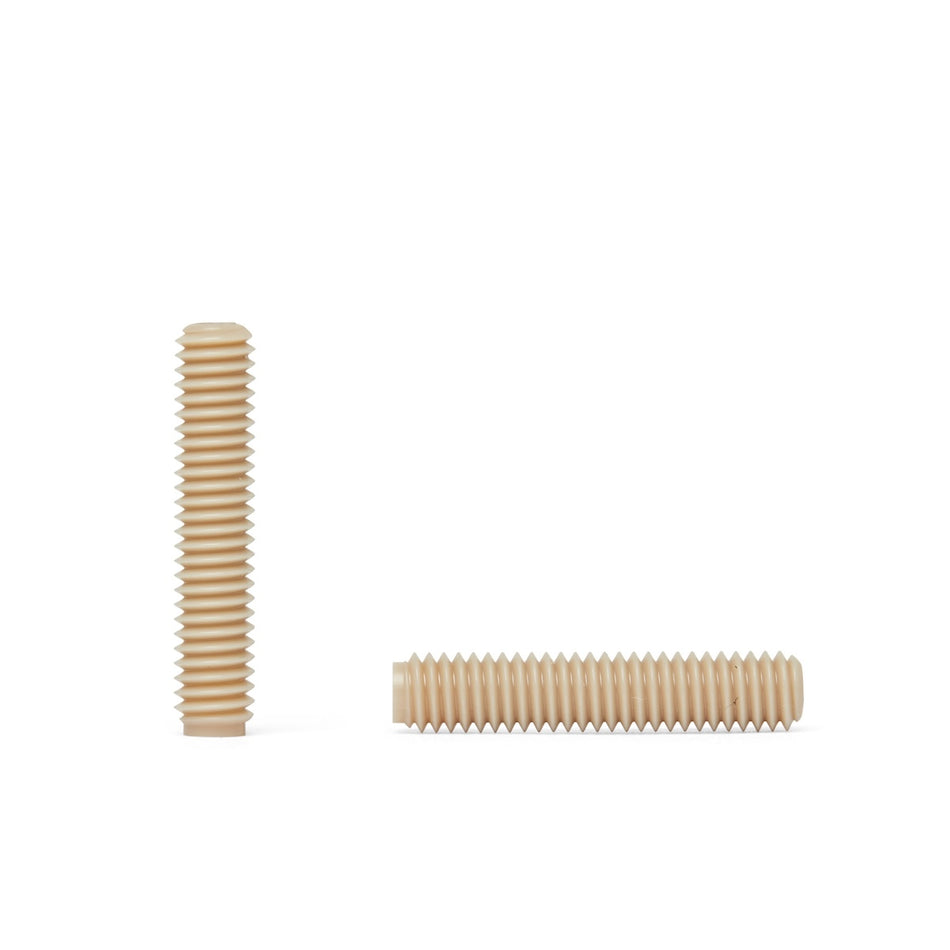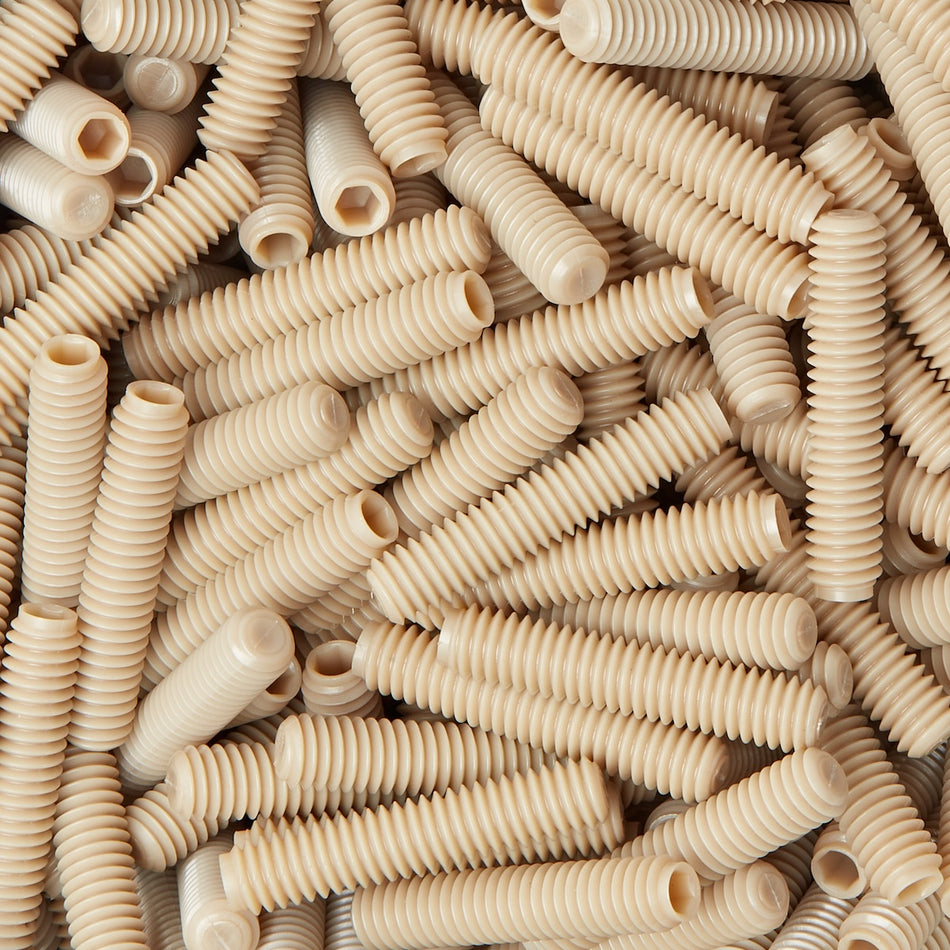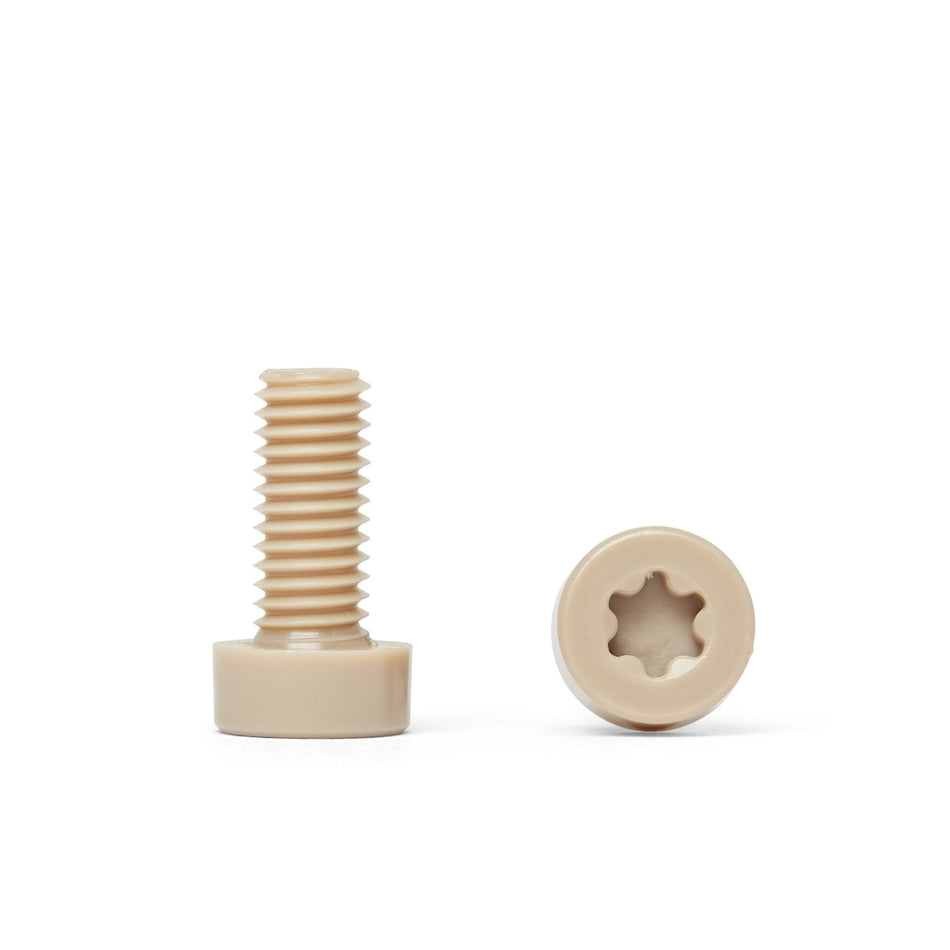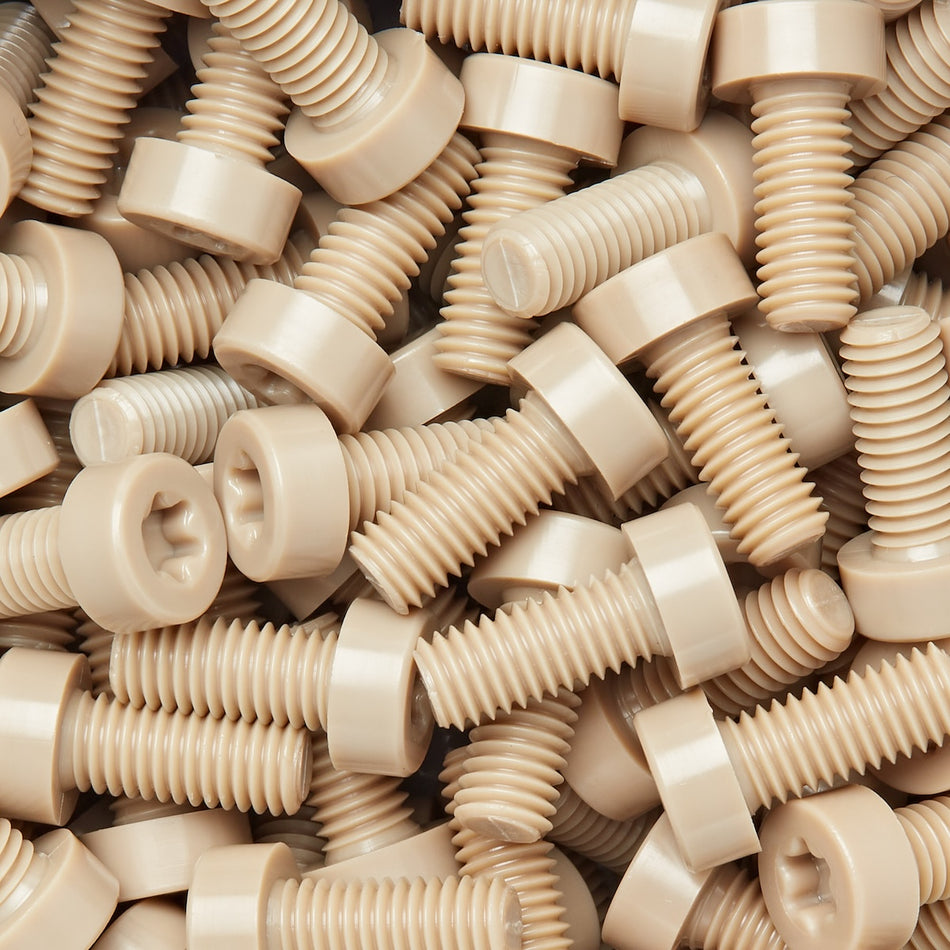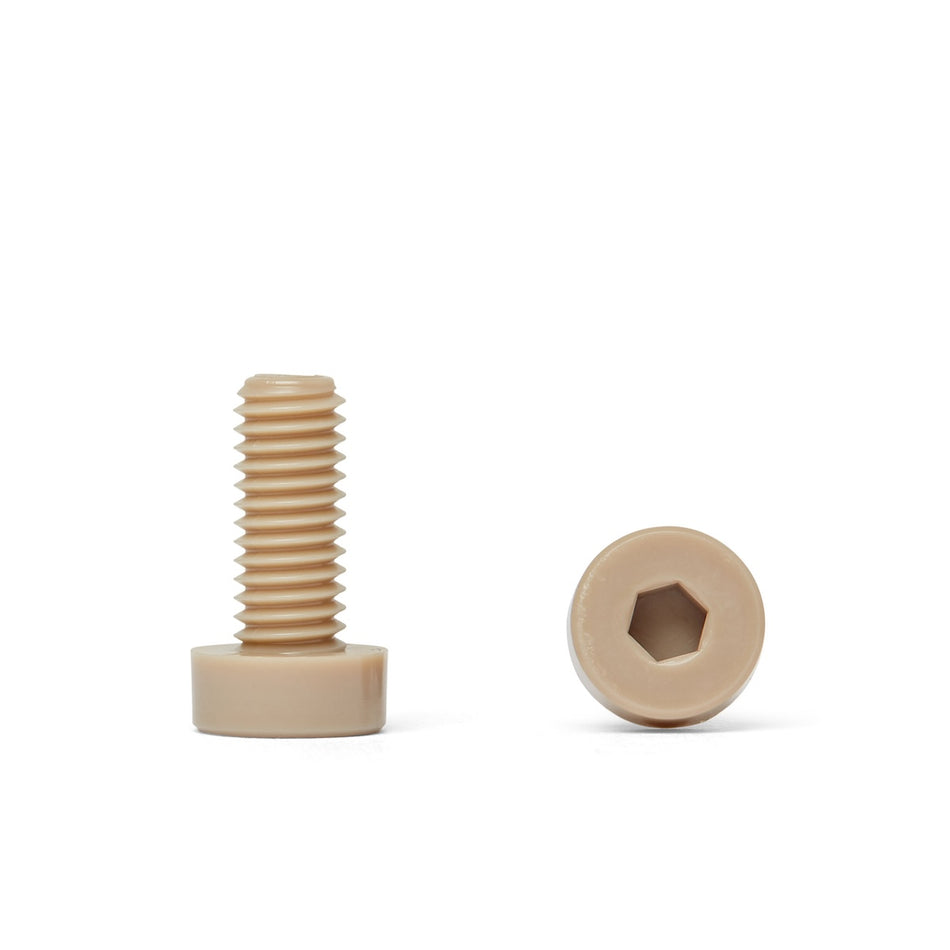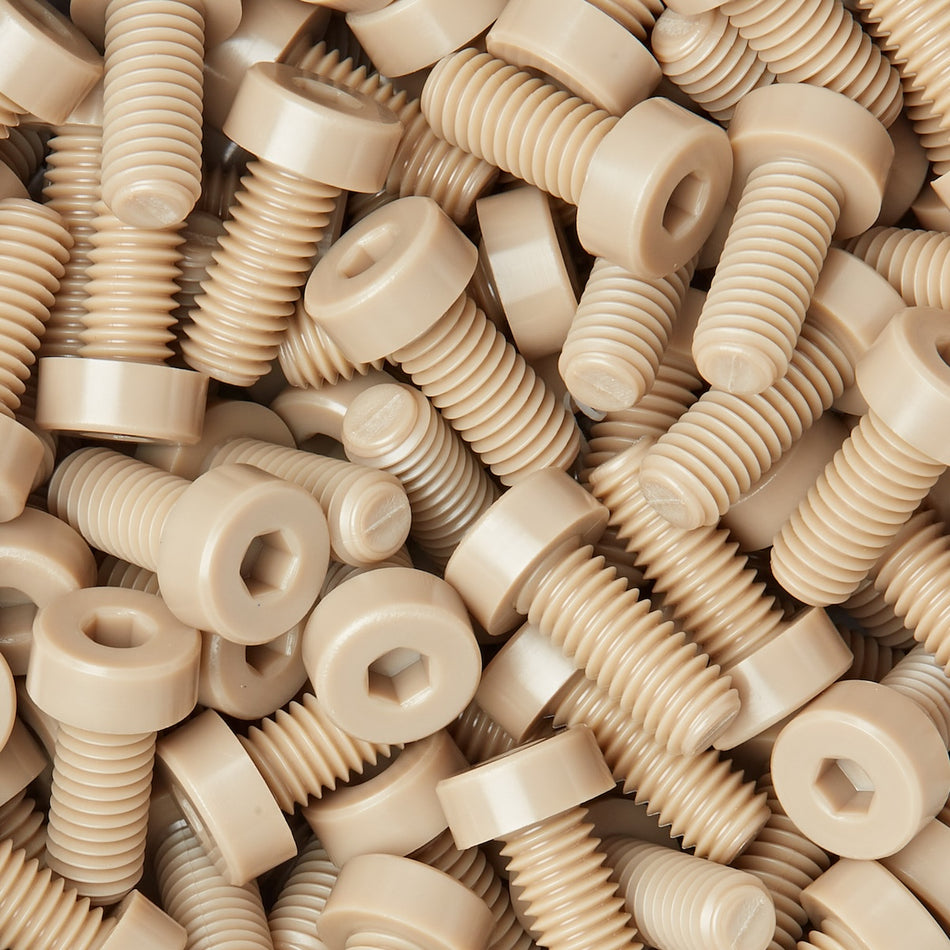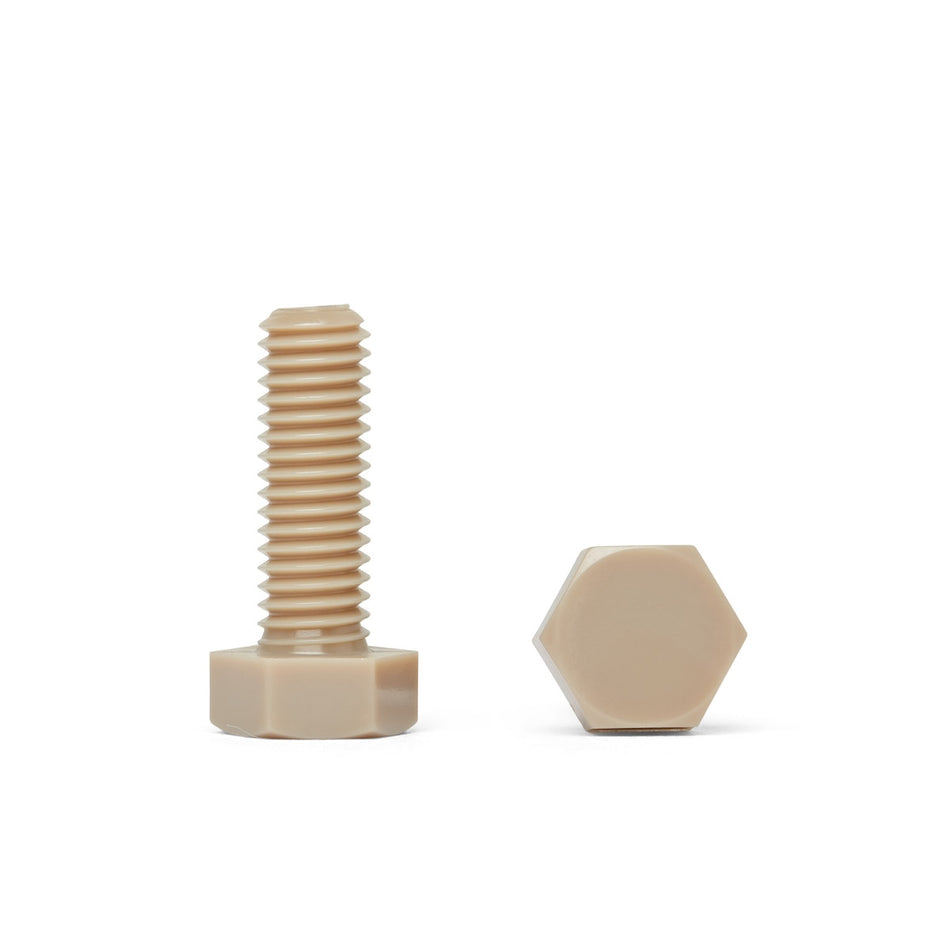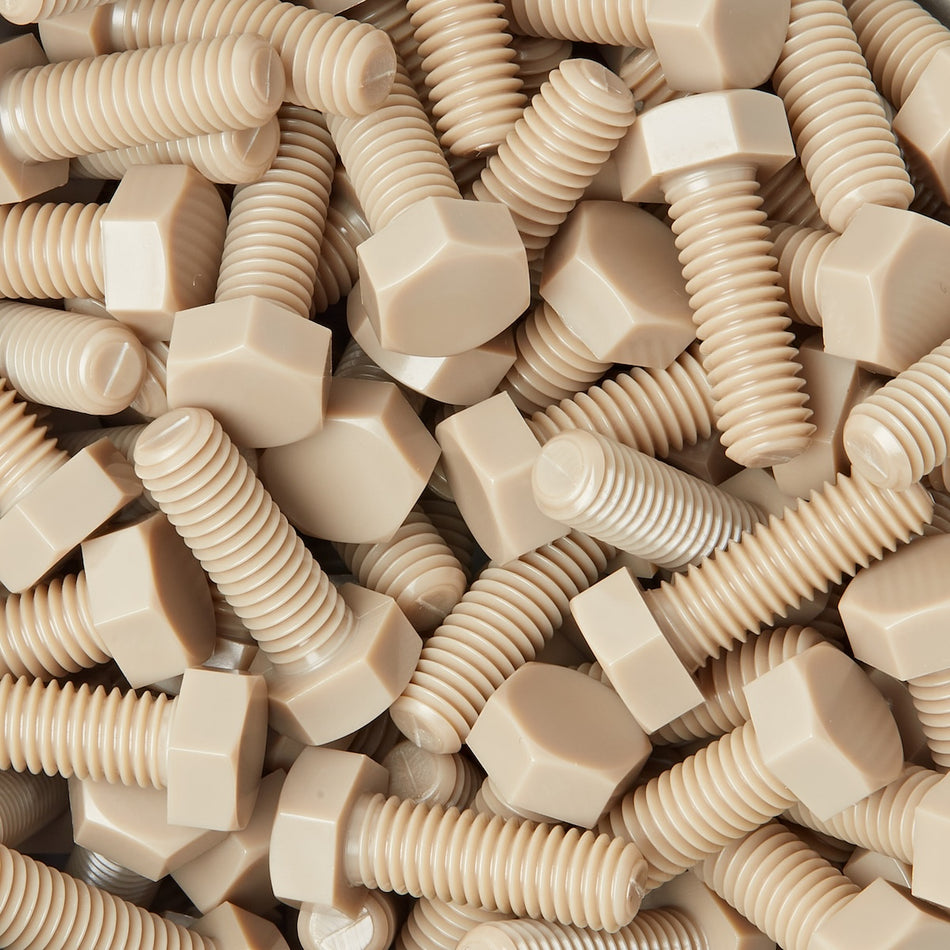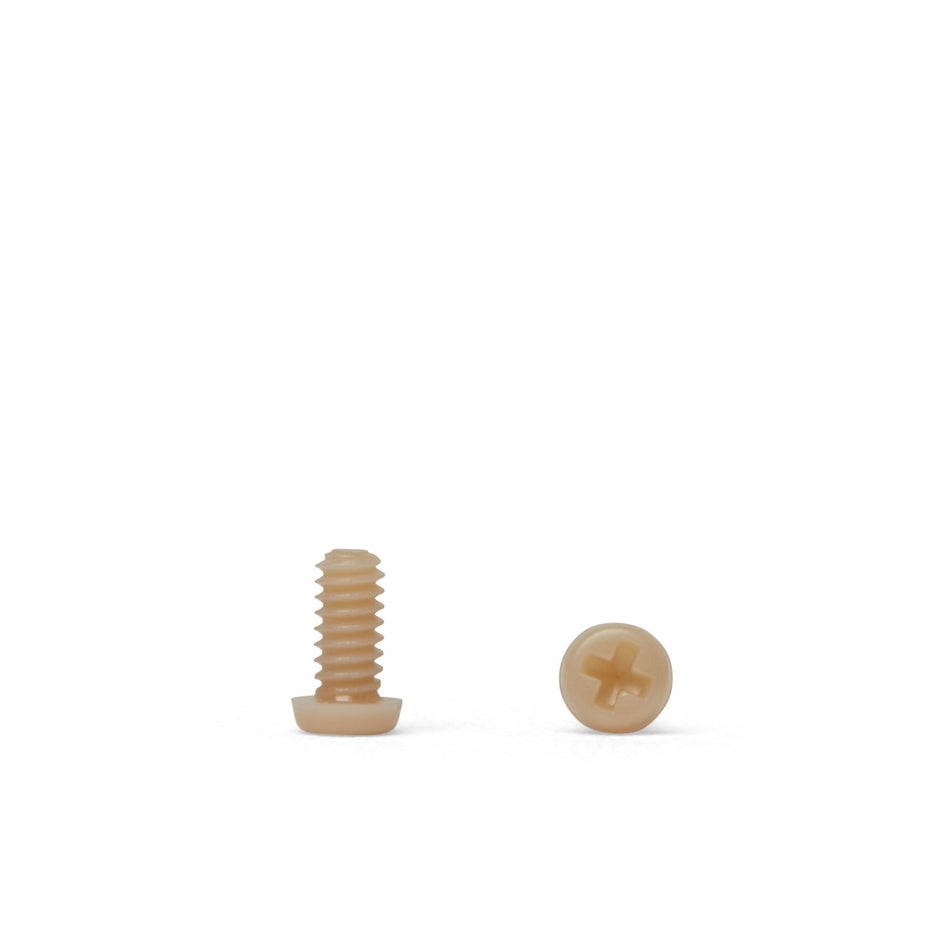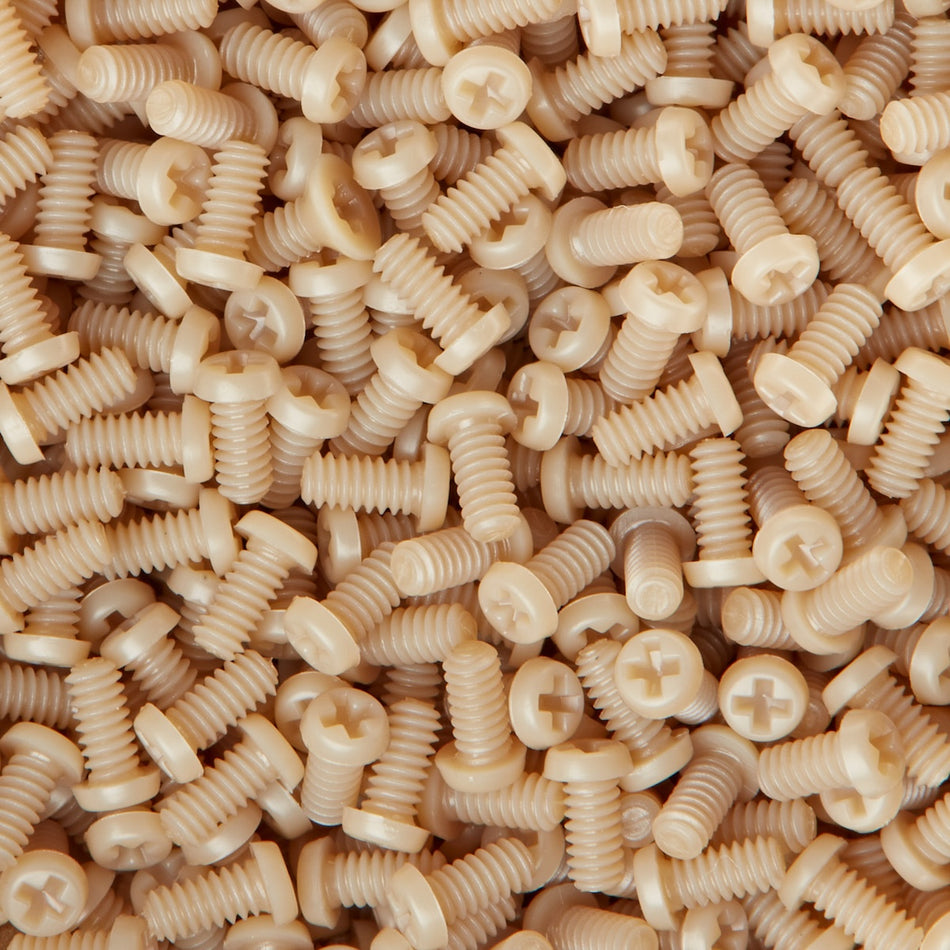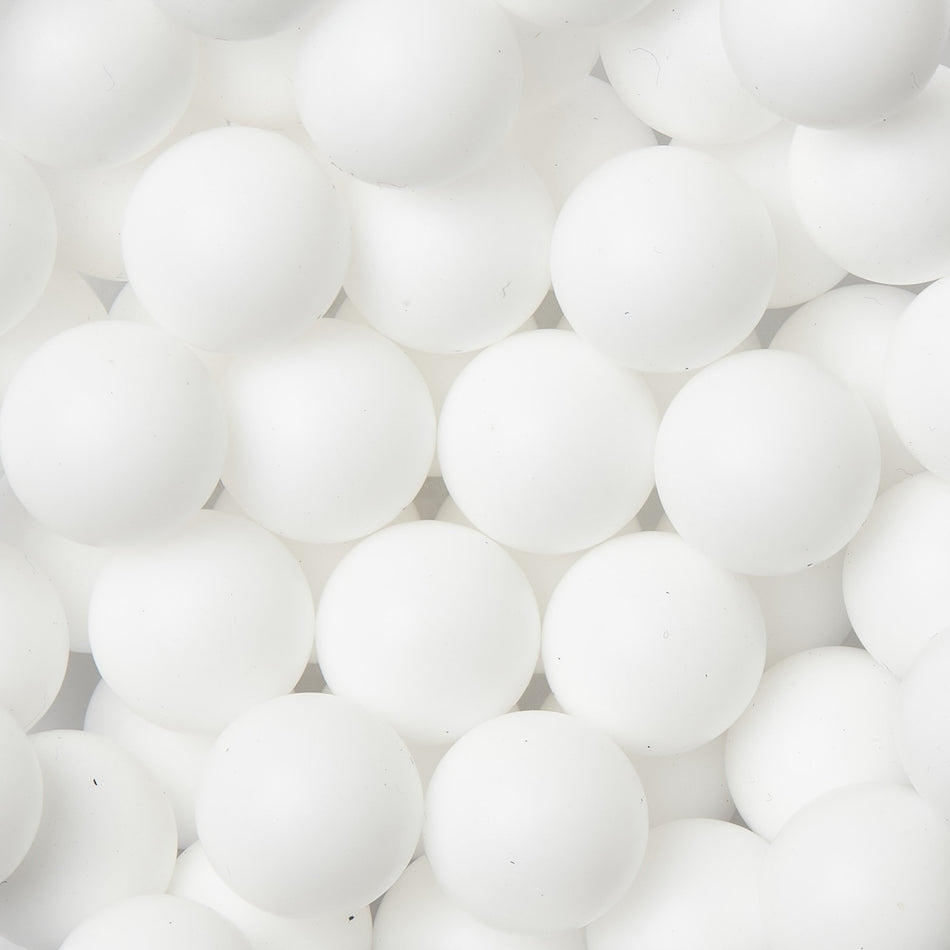200 Produkte
Chemikalienbeständige Schrauben, Muttern, Bolzen, Unterlegscheiben und Befestigungselemente
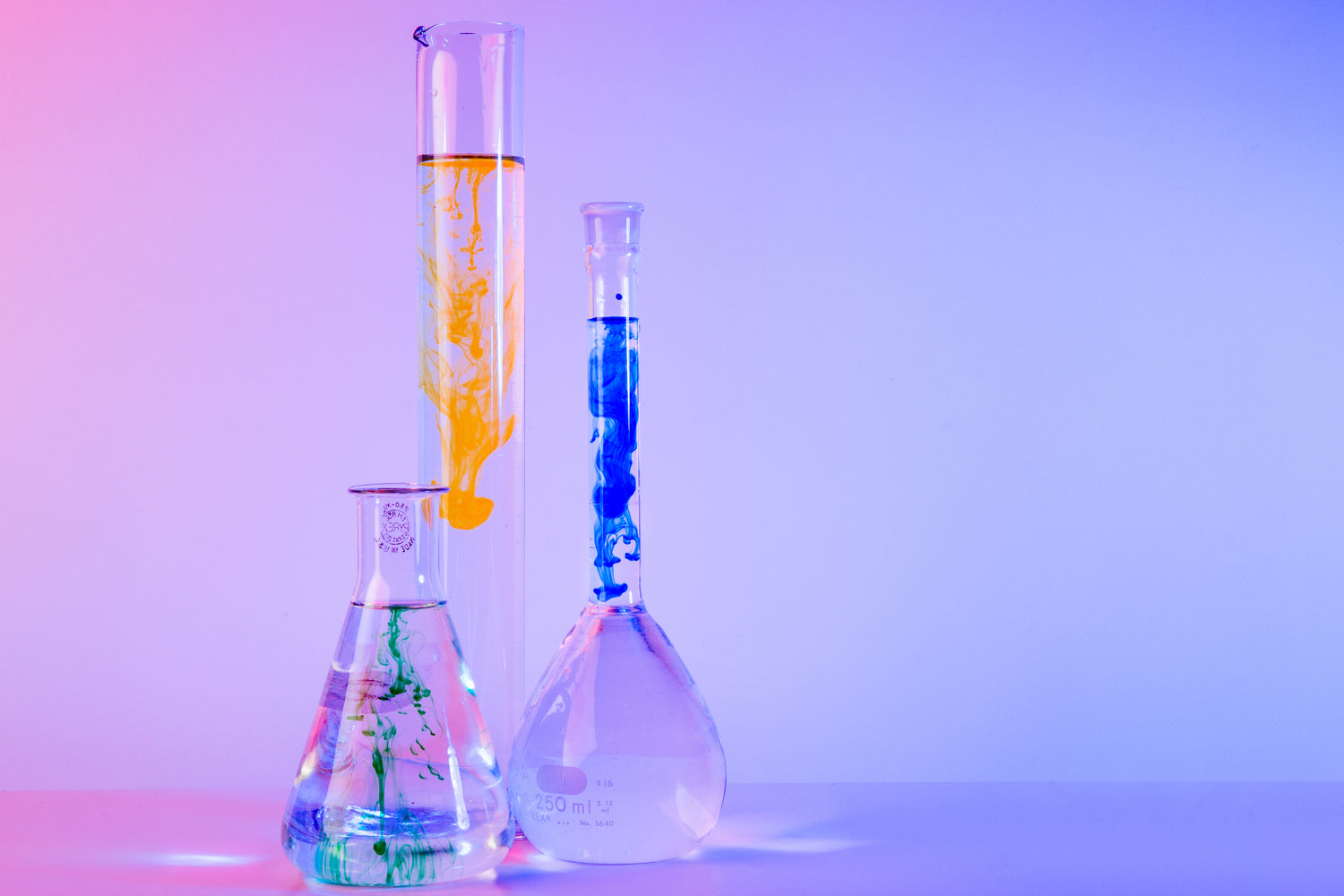
Why Are Chemical Resistant Fasteners Needed?
Chemical resistant screws, nuts, bolts, washers, and fasteners are an important component in many applications where chemical exposure is a concern, and they can help to extend the service life of fasteners and improve the reliability of equipment and structures in chemically challenging environments.
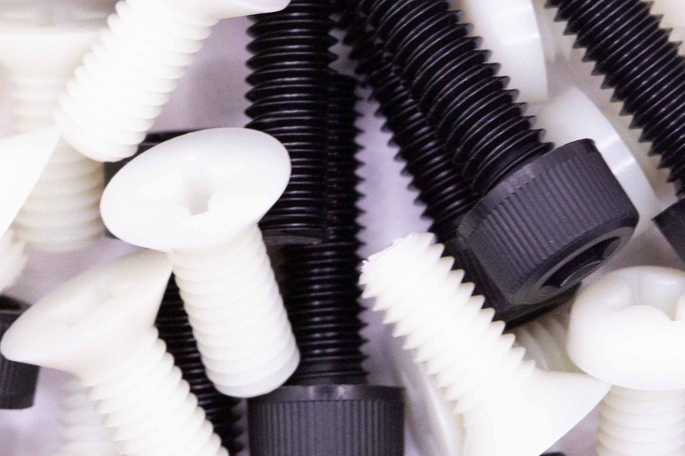
Chemical Resistant Polymer Fasteners
Chemical resistant polymer fasteners are a type of fastener that is made from polymers, or plastic materials, that are resistant to chemical corrosion. These are used in a wide range of applications where exposure to chemicals could be a problem, and they offer several benefits over traditional metallic fasteners.
One of the main benefits of chemical resistant polymer fasteners is their lightweight and easy-to-handle properties. This makes them particularly suitable for use in applications where weight is a concern, such as in the aerospace and automotive industries. Polymer fasteners are also typically easier to install than metal equivalents, as they do not require specialized tools or equipment.
In addition to their lightweight and easy-to-handle properties, chemical resistant polymers offer good electrical insulation properties. This makes them suitable for use in electrical and electronic applications where electrical insulation is important.
There are several types of chemical resistant polymer fasteners, including polyetheretherketone (PEEK), polyvinyl chloride (PVC), and polyvinylidene fluoride (PVDF). PEEK fasteners are known for their excellent mechanical and thermal properties, as well as their resistance to a wide range of chemicals. PVC fasteners are also known for their good mechanical and thermal properties, as well as their resistance to UV light and weathering. PVDF fasteners are known for their excellent chemical resistance, making them suitable for use in corrosive environments.
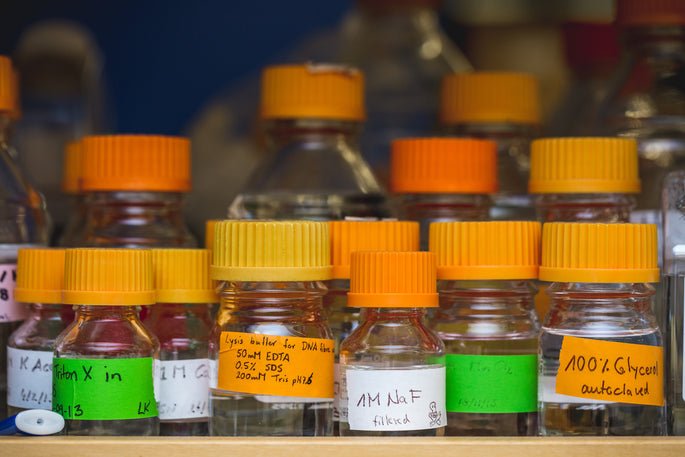
What are chemical resistant fasteners used for?
Chemical-resistant fasteners are essential in industries where exposure to corrosive substances and harsh environments is frequent. They are widely used in chemical processing plants, refineries, and wastewater treatment facilities, where they ensure the integrity of equipment and structures by resisting degradation from acids, solvents, and other aggressive chemicals. These fasteners are also critical in the pharmaceutical and food industries, where maintaining hygiene and preventing contamination is crucial. In marine applications, chemical-resistant fasteners help prevent corrosion from saltwater, while in the aerospace and automotive sectors, they provide durable solutions for components exposed to extreme conditions.
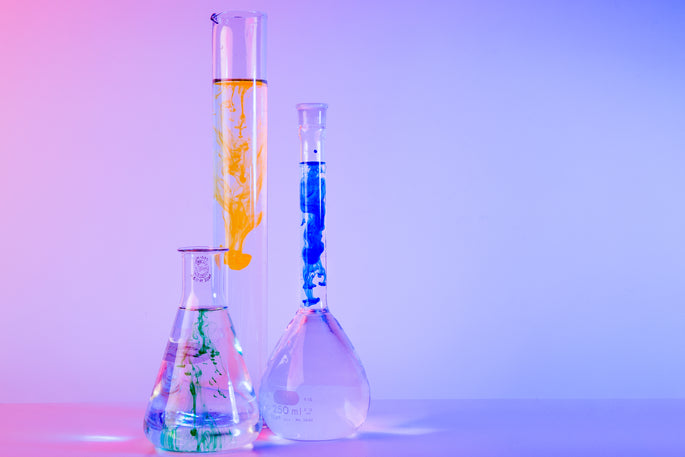
What Are Chemical Resistant Fasteners?
Chemical resistant screws, nuts, bolts and washers are fasteners that are designed to resist the effects of chemical exposure. They are used in a variety of applications where chemical exposure is a concern, such as in the chemical or pharmaceutical industries, or in environments where corrosive substances are present.
Chemisch beständige Schrauben, Muttern, Bolzen, Unterlegscheiben und Befestigungselemente sind so konstruiert, dass sie den Auswirkungen chemischer Einflüsse standhalten. Sie werden in einer Vielzahl von Anwendungen eingesetzt, bei denen chemische Einflüsse eine Rolle spielen, beispielsweise in der chemischen oder pharmazeutischen Industrie oder in Umgebungen mit korrosiven Substanzen.
Es gibt verschiedene Möglichkeiten, Verbindungselemente chemikalienbeständig zu machen, darunter die Verwendung chemisch beständiger Materialien und das Aufbringen chemisch beständiger Beschichtungen. Zu den gängigen Materialien für chemisch beständige Verbindungselemente gehören Edelstahl, Messing und Bronze sowie bestimmte Kunststoff- und Polymerarten. Diese Materialien sind aufgrund ihrer inhärenten chemischen Eigenschaften korrosionsbeständig und beständig gegen andere Arten chemischer Zersetzung. Sie werden häufig in Umgebungen eingesetzt, in denen Chemikalienbelastungen ein Problem darstellen.
Neben chemisch beständigen Materialien können Befestigungselemente auch mit chemisch beständigen Beschichtungen versehen werden, um zusätzlichen Schutz vor chemischen Einflüssen zu bieten. Diese Beschichtungen können durch Verfahren wie Galvanisieren, Eloxieren oder Lackieren aufgebracht werden und tragen dazu bei, das darunterliegende Material vor den Auswirkungen chemischer Einflüsse zu schützen.
Insgesamt sind chemisch beständige Schrauben, Muttern, Bolzen, Unterlegscheiben und Befestigungselemente ein wichtiger Bestandteil vieler Anwendungen, bei denen eine chemische Belastung ein Problem darstellt. Sie können dazu beitragen, die Lebensdauer von Befestigungselementen zu verlängern und die Zuverlässigkeit von Geräten und Strukturen in chemisch anspruchsvollen Umgebungen zu verbessern.

